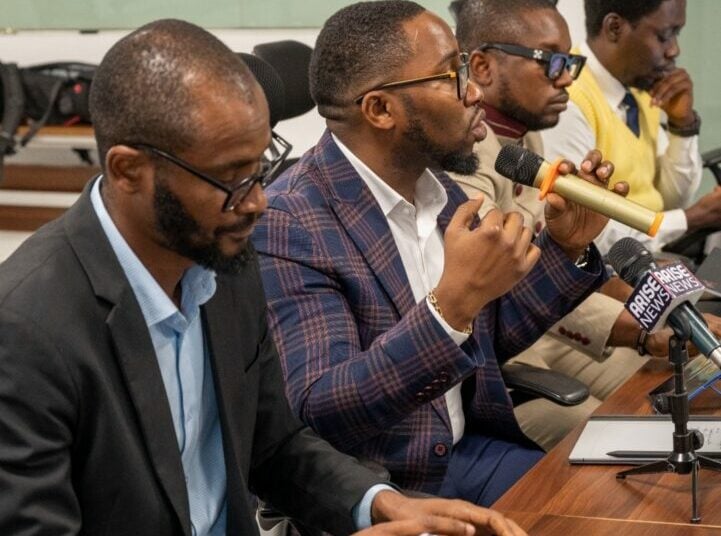The Sydani Group, an organisation that specialises in health system strengthening, agriculture, education and socio-economic development, said it has vaccinated 238,158 individuals between January and June 2025 under its Saving Lives and Livelihoods project, activating 517 health facilities to deliver integrated services.
The group’s Programme Manager for Health, Dr Obiamaka Enwezor, said more than 3,500 Hajj pilgrims also received multiple antigens during the period.
Dr. Enwezor, who stated this during a media roundtable in Abuja, explained that the group invested in capacity building for frontline health workers, developing and validating a suite of Expanded Programme on Immunisation (EPI) training modules covering logistics, service delivery, demand generation, data management, and financial accountability.
Beyond routine immunisation, Dr. Enwezor noted that the organisation highlighted the City Lights and Livelihoods (CLL) II Project, which focused on strengthening primary healthcare systems, building the capacity of health workers, and enhancing pandemic preparedness.
She said the project convened a national dialogue on life-course immunisation and supported the integration of immunisation across all stages of life into Nigeria’s health system.
The organisation also deployed a digital open data kit to strengthen real-time health data reporting and transparency, she stated, adding that In April, it launched the SparkNiger Project to enhance disease surveillance and early warning systems across six states.
The initiative supported Niger State’s first multi-hazard risk assessment and provided rapid support during floods in Mokwa, while surveillance activities detected over 120 cases of measles, diphtheria, meningitis, and acute flaccid paralysis, she said.
To reduce the number of zero-dose children, she said the organisation, in partnership with the US Centers for Disease Control and the Task Force for Global Health, vaccinated more than 13,000 under-five children in four local government areas of Niger State, more than half of whom had not received any vaccine before.
She stated, “SLL Phase II supported the advancement of Nigeria’s immunisation data governance by supporting the review of the country’s National Health Management Information System tools along with partners. A pilot protocol for integrated immunisation data was co-developed with the Federal Ministry of Health and Social Welfare, and partners, while the Open Data Kit enabled timely, validated field-level reporting for outreach teams.
“The impacts showed that we have conducted 11,019 outreach sessions across 10 states, 238,158 individuals vaccinated from January to June 2025, including 150,635 adult doses (tetanus, diphtheria, human papillomavirus); 517 health facilities activated to deliver integrated services; and more than 3,500 Hajj pilgrims were vaccinated with multiple antigens.”
On research, a research scholar with the organisation, Dr Stephen Asaolu, noted that Sydani had supported the design and implementation of multiple studies, leading to 30 peer-reviewed publications in just two years.
These, he said, included work on HPV vaccine uptake among adolescents, integration of health interventions into neglected tropical disease programmes, and compliance with minimum quality standards in Nigerian health facilities.
Sydani’ Agric Division Lead, Mr Godfrey Petgrave, disclosed that a digital solutions assessment project was underway in six states supported by the International Fund for Agricultural Development.
According to him, the project aims to identify adoption levels and skills gaps in digital technology among farmers and project implementers, with findings to inform the development of a digitalisation strategy manual.
Reflecting on the organisation’s seven-year journey, Group Managing Partner, Mr Sidney Sampson, said Sydani remained committed to deepening its impact across health, education, agriculture, and technology. He stressed that while Nigeria had strong policies, implementation gaps continued to undermine development outcomes.
“Our philosophy is simple: we see problems as opportunities to provide solutions. What we have done so far is only a scratch on the surface. We want to go deeper, to ensure our work is transforming systems and lives,” Sampson said.





